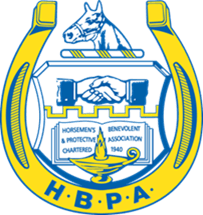Increasing the number and scope of Inspections
Effective immediately, the Government is massively increasing the number of inspections so that one in four employers will be inspected each year. This will include onsite visits, and interviewing employer and employee. Employers must keep all records for a period of six years. These records include all documents related to their applications, including recruitment documents like résumés, proof of payment of transportation to and from Canada, medical coverage for the first three months, payroll documentation, timesheets, WSIB coverage etc. for a period of six years. Furthermore, ESDC will be able to compel banks and payroll companies to provide bank records and payroll documents to help inspectors verify that employers are complying with the rules of the TFWP.
New applications for 2020
New applications are now
available online. Applications have been streamlined.
Application fee
Fee to process each LMIA application is $1,000.00. There will be no refund in the event of a negative LMIA, or if the
application is withdrawn or cancelled by the employer as the fee covers the assessment process and not the outcome. The employer cannot recover the cost of this processing fee, in whole or in part, from the employee. Blacklisting, suspensions, and fines will be levied against any employer that does so.
Determining Low Wage/High Wage Application
The median wage for Ontario is $23.08/hour. To determine if the job is high or low wage the employer takes the offered salary (salary must be the same as their Canadian workers – not higher or lower) and divide it by the weekly hours (riders approx. 30-35 hours/ week and grooms approx. 40-44 hours/week)
Low Wage – under $23.08/hour
Employers should use the Low Wage
LMIA application and these jobs are subject to the ‘CAP’ – in addition with low wage job employers must always pay for the transportation costs (e.g. plane, train, boat, car, bus) of the TFWs to the work location in Canada and back to their place of permanent residence. (The cost for transportation to Canada must be paid up-front by the employer to ensure that it is not part of any negotiations related to the employment contract.) Employers must also pay for the TFW’s private health insurance. Coverage must begin from the time the TFW arrives in Canada until the worker is covered by the appropriate provincial/territorial health insurance plan (3 months).
Cap
Employers hiring TFWs and offering them a wage that is below the provincial/territorial
median hourly wage, are subject to a cap on the proportion of TFWs they can hire in low-wage positions at a specific work location.
The cap, implemented on June 20, 2014, was phased in to provide employers time to transition to a Canadian workforce which means that they are limited to a:
- 20 percent cap on the number of TFWs in low-wage positions, or the employer’s established estimated cap (whichever is lower), if the employer hired a TFW in a low-wage position prior to June 20, 2014;
- Or 10 percent cap on the number of TFWs in low-wage positions if the employers did not employ a TFW in a low-wage position prior to June 20, 2014
Exemptions to the ‘Cap’
- Positions for which employers are submitting an application to support a TFW’s permanent residence under an Express Entry program;
- Low-wage positions for businesses with fewer than 10 employees nationally, including the vacant positions that the employer is applying to staff with TFWs
High Wage –$23.08/hour or over
Employers do not have to pay the workers transportation cost or medical insurance for the first three months, but they do have to submit a Transition Plan (see below)
Transition Plan
Employers who want to hire temporary foreign workers in high-wage occupations will be required to submit transition plans with their Labour Market Impact Assessment (LMIA) application to ensure that they are taking steps to reduce their reliance on temporary foreign workers over time. The plan includes activities like investing in skills training or taking on more apprentices, or an employer can provide proof that they are helping a high-skilled temporary foreign worker transition to becoming a permanent resident of Canada. Employers will also be required to undertake additional recruitment activities, including reaching out to organizations serving groups traditionally underrepresented in the workforce (e.g. new immigrants, Aboriginal people, youth, Canadians with disabilities) to fill available job
Advertising
Minimum 3 job websites, including Job Bank for 4 weeks continuous (Service Canada recommends posting on more than 3 sites and target specific sites for horse people and underrepresented groups).
Ads to run four weeks prior to submitting your application and continue to run for the duration of the application processing time. Copies of Ad and proof of posting and time period must be provided when applying for TFWP. Some of the sites are free and some involve costs:
- www.equineguelph.com
- http://www.aboriginalcareers.ca/ (Mandatory First Nations)
- http://www.horse-canada.com/
- www.jobbank.gc.ca (Mandatory 4 weeks continuous)
- Email www.costi.org (Mandatory – immigrants)
- https://horse.on.ca/resources/classifieds/ (Ontario Equestrian Federation)
- https://www.yardandgroom.com (Equestrian jobs in Ontario)
- YMCA or Youth Centres (Mandatory for targeting youth)
- reception@miziwebiik.com (Aboriginal employment and development)
The advertisement must include:
- Company operating name
- Business address
- Title of position
- Job duties (for each position, if advertising more than one vacancy)
- Terms of employment (e.g. project based, permanent position)
- Wage
- Benefits package being offered (HBPA subsidized Medical/Dental plan)
- Location of work (local area, city or town)
- Contact information: telephone number, cell phone number, email address, fax number, or mailing address; and
- Skills requirements: (education and work experience)
Records of the employers’ efforts must be kept for a minimum of 6 years. This documentation can be requested at any time by ESDC/Service Canada, as the Department has the authority to conduct inspections to verify an employer’s compliance with the conditions in the Immigration and Refugee Protection Regulations (IRPR) (and confirmed in the LMIA letter and annexes) for a period of 6 years, beginning on the first day of the period of employment for which the work permit is issued to the TFW.
Job Match service
Effective August 28, 2017, you must use the Job Match service for recruitment purposes when advertising a position on Job Bank.
The Job Match service allows you to see anonymous profiles of registered job seekers which correspond to the skills and requirements outlined in your job posting. Each match is rated using a star system of one to five stars. The more stars received by the match, the greater the compatibility between your advertised position and the anonymous job seeker.
When seeking to fill a low-wage position, you are required to invite all job seekers matched within the first 30 days of your job advertisement to apply for the position if they are rated two stars or more.
Business legitimacy
All employers applying to the Temporary Foreign Worker Program (TFWP) must be actively engaged in the business where the TFW will be employed. Employers must have an operating/functioning business, providing either a good or service related to the job offer made to the TFW in Canada.
New employers hiring a TFW must always submit one document which supports their active engagement in the business. Returning applicants to the Program are not required to re-submit any documentation. (unless they have not submitted a LMIA application in the last few years) However, ESDC/Service Canada may request that employers submit additional documents when they are applying for a new LMIA. Employers who provide documents that are not requested may slow down the processing of their application.
Documentation which supports an employer’s active engagement includes:
- municipal/provincial/territorial/ business licence (where applicable and if first LMIA application)
- business registration or legal incorporation documents (if first LMIA application)
- Canada Revenue Agency (CRA) documents (where applicable and if first LMIA application) including:
- T2 Schedule 100 Balance Sheet Information (for corporations only – 2 most recent returns filed)
- T2 Schedule 125 Income Statement Information (for corporations only – 2 most recent returns filed)
- attestation by a lawyer, notary public or Chartered Professional Accountant, who is a member in good standing within the respective professional bodies, confirming that the employer is engaged in a legal business that provides a good and/or service in Canada and that the business is in good financial standing and will be able to meet all financial obligations to any TFWs hired (for sole proprietorships/partnerships)
- a formal letter from a legal business confirming the existence of a contract for a good and/or service with the employer applying for an LMIA
- commercial lease agreement (with the financial information redacted/blackened out)
- provincial/territorial workplace safety and insurance (for example workers compensation board) clearance letter (if applicable)



